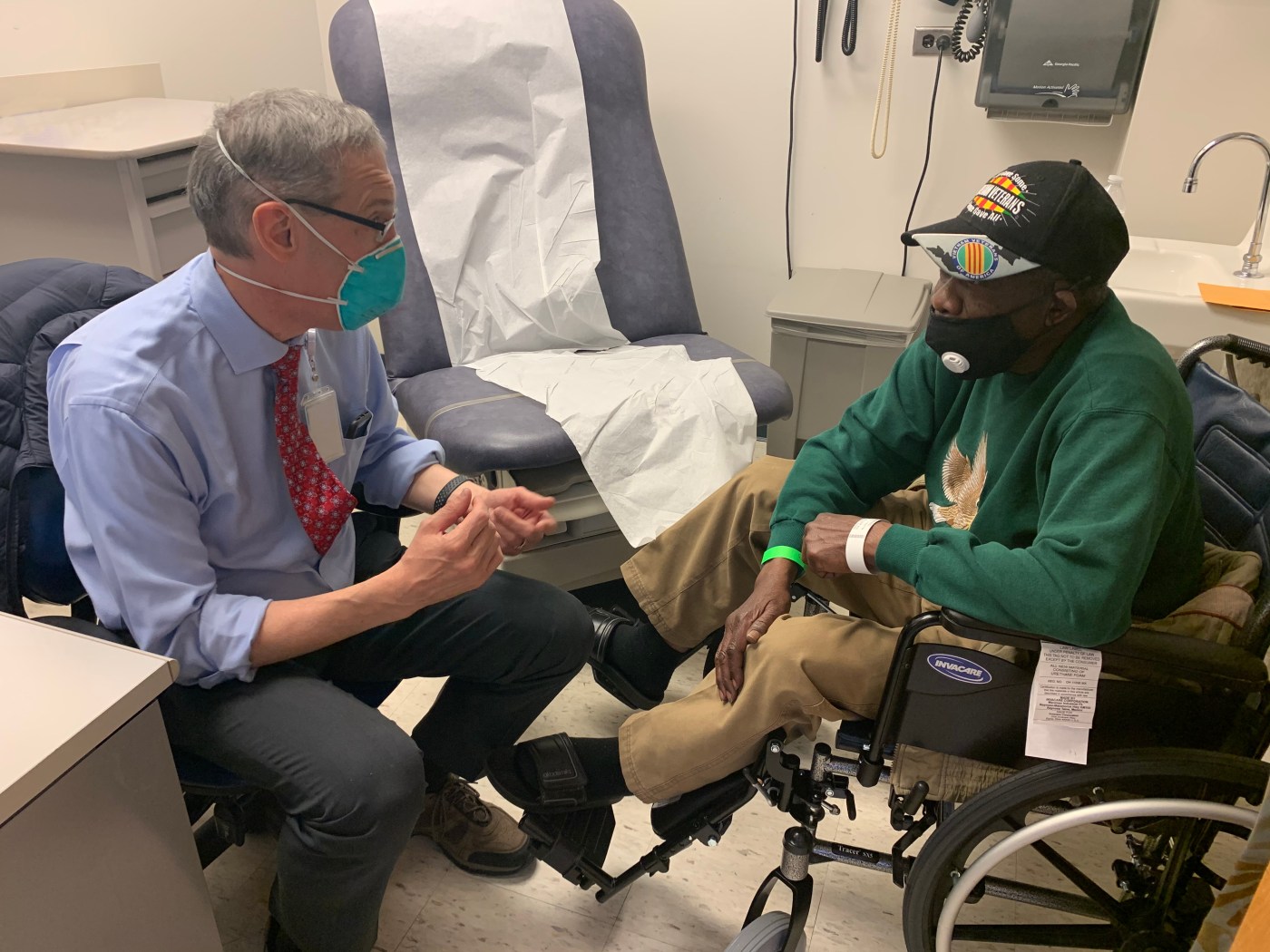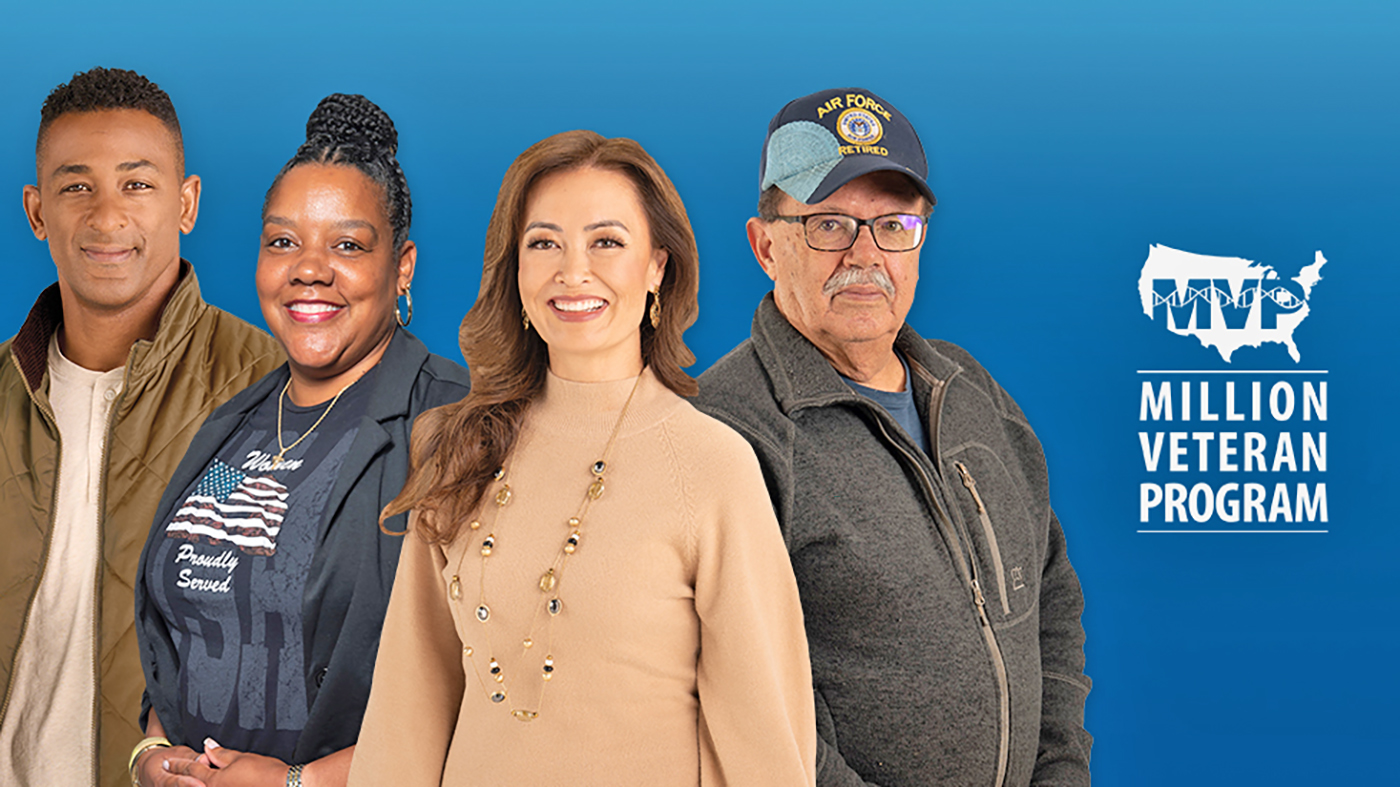A common view of physicians is that they use complicated language that is peppered with jargon.
While this may not always be the case, it can be a problem if patients feel they can’t effectively talk to their doctors.
The danger in using language that patients don’t understand is twofold: Patients may not successfully receive essential information from physicians, and physicians may be less effective in building trust with their patients.
A team of VA researchers led by Dr. Howard Gordon at the Jesse Brown VA Medical Center in Chicago studied diabetic patients’ beliefs about their roles in communicating with physicians.
The study, published in BMC Health Services Research, found that Veterans’ use of participatory (active) communication was influenced by their beliefs about their diabetes and their views of physicians’ expectations.
Participatory communication emphasizes two-way dialogue. It encourages the sharing of opinions, information, and perceptions between speakers.
Asking questions
Patients should feel comfortable asking their physicians questions, making requests, or expressing an opinion. If they don’t, it could impact the effectiveness of their medical care, according to the researchers.
“Patients should not be afraid to speak up and ask questions, to challenge a physician’s statement, or to jump in and share additional information,” said Gordon. It’s not necessary for patients to know the “right questions” to ask, he added. The goal is to help patients feel comfortable discussing their concerns with the doctor.
However, studies have shown patients with chronic diseases or low health literacy, or who are minorities or part of other vulnerable populations, may find it more difficult to effectively communicate with their doctors.
“Understanding these barriers is important because patients who are less engaged and use less active communication may gain less understanding of their type 2 diabetes, may be less likely to adhere to treatment recommendations, and may have worse outcomes,” wrote the researchers.
Targeting Veterans with high blood sugar
Because good communication skills go hand-in-hand with better outcomes, Gordon and his colleagues focused on Veterans who had high blood sugar.
The investigators held four focus groups, including 20 male Veterans in total, who had type 2 diabetes. Study participants were on average 61 years old; 65% were African American; 80% had completed high school; and all were from an inner-city VA hospital in Chicago.
Veterans in the study had an average hemoglobin A1C of 10.3%, which means they had significantly elevated blood glucose levels. Typically, physicians strive to maintain an A1C of 7% or lower for patients with diabetes.
Hemoglobin A1C measures glucose bound to hemoglobin molecules in the blood. The test reflects the average level of glucose over a three-month period. An elevated A1C indicates excess sugar in the bloodstream, which raises a person’s risk of diabetes complications.
Understanding patient beliefs and outlooks
The focus group members were shown a video similar to one developed by the Agency for Healthcare Research and Quality called “Questions are the Answer,” to break the ice and introduce the topic of asking questions.
The Veterans were then asked a series of questions about their feelings on what it was like to have diabetes; how they felt about talking with their doctor; and how communication could be improved.
After transcribing the focus group discussions, a coder assigned different “themes” to facilitate analysis.
After analyzing the data, the researchers grouped the themes into three categories: patients’ beliefs about their condition; their views of physician communication behaviors; and external influences on patient-physician communication.
More information
Click here to read the full article.
Click here to learn more about VA research.
Topics in this story
More Stories
Diverse representation of women in health care research allows MVP to make discoveries for women’s health
Join the Million Veteran Program online. You will have the option to receive an at-home blood sample collection kit in the mail.
VHA's new podcast series, New Horizons in Health, features a candid discussion of psychedelic assisted therapies for Veterans experiencing mental health conditions.






